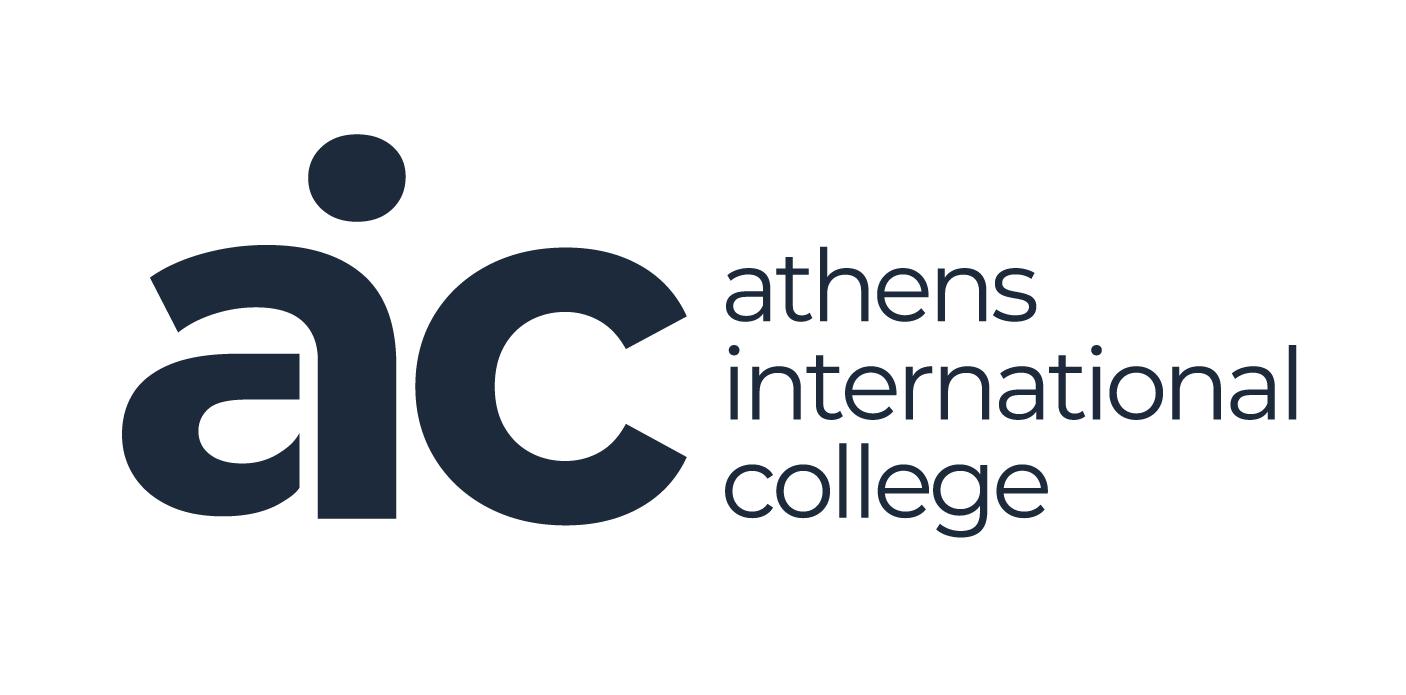
Μάθε πώς να εφαρμόζεις την τεχνολογία σε πραγματικά προβλήματα data science. Απόκτησε εις βάθος κατανόηση τεχνικών, στατιστικής ανάλυσης και υπολογιστικών μεθόδων με αυτόν τον ευέλικτο μεταπτυχιακό τίτλο
-
Απαραίτητες ψηφιακές δεξιότητες για την αγορά
Μαθαίνεις πώς να εφαρμόζεις τεχνολογίες στην πράξη, αναπτύσσοντας δεξιότητες που «πουλάνε» στην αγορά εργασίας. -
Εξειδίκευση εξατομικευμένη
Επιλογή ανάμεσα σε δύο εξειδικεύσεις:-
Τεχνητή Νοημοσύνη (AI): ευκαιρίες στους τομείς της τεχνολογίας, ρομποτικής, ακαδημίας και δημόσιας έρευνας.
-
FinTech: πρόσβαση στον χρηματοοικονομικό τομέα
-
-
Πανεπιστημιακός τίτλος υψηλού κύρους
Το πρόγραμμα έχει σχεδιαστεί από το Goldsmiths, University of London, ένα από τα κορυφαία βρετανικά ιδρύματα στην καινοτομία και δημιουργικότητα. -
Σπουδές εξ αποστάσεως από οπουδήποτε
Οργάνωσε τις σπουδές σου γύρω από τη ζωή σου. Πρόσβαση σε ολοκληρωμένο υλικό μελέτης, από κορυφαίους ειδικούς, μέσω του VLE (Περιβάλλον Εικονικής Μάθησης) -
Αξιοποίηση πηγών μάθησης
Πρόσβαση σε διαδραστικές συνεδρίες, σημειώσεις, παλιά εξεταστικά ερωτήματα, forums με συμφοιτητές και εξατομικευμένη υποστήριξη μέσω του εκπαιδευτικού κέντρου.
Στο πλαίσιο των Teaching Centres του University of London, ο όρος academic direction αναφέρεται στον σχεδιασμό, την ανάπτυξη και την εποπτεία του ακαδημαϊκού περιεχομένου και των προτύπων ενός προγράμματος. Η ακαδημαϊκή κατεύθυνση παρέχεται από ένα lead college (π.χ. LSE, Royal Holloway, Goldsmiths), το οποίο διασφαλίζει την ποιότητα και καθορίζει τις αξιολογήσεις.
Τα Teaching Centres, όπως το AIC, προσφέρουν τη διδασκαλία, αλλά η ακαδημαϊκή αρμοδιότητα και το πρόγραμμα σπουδών προέρχονται από το μέλος του University of London που διευθύνει το πρόγραμμα.
Το University of London είναι ο φορέας απονομής (awarding body) για όλα αυτά τα προγράμματα.
Ως Αναγνωρισμένο Κέντρο Διδασκαλίας (Recognised Teaching Centre) για τα προγράμματα του University of London (UoL), το Athens International College (AIC) υποστηρίζει τους φοιτητές που σπουδάζουν για πτυχία του UoL μέσω εξ αποστάσεως και ευέλικτης μάθησης.
Το AIC παρέχει τοπική, δια ζώσης ακαδημαϊκή υποστήριξη και πόρους που συμπληρώνουν το υλικό και τις διαδικτυακές πλατφόρμες του UoL.
Προσφέρει μαθήματα με φυσική παρουσία, tutorials, επαναληπτικές συνεδρίες, καθώς και πρόσβαση σε υποδομές όπως βιβλιοθήκες, εργαστήρια υπολογιστών και χώρους μελέτης.
Οι διδάσκοντες του AIC είναι εκπαιδευμένοι και εξοικειωμένοι με τα ακαδημαϊκά πρότυπα και τις απαιτήσεις αξιολόγησης του UoL, βοηθώντας έτσι τους φοιτητές να προετοιμαστούν αποτελεσματικά για εξετάσεις και εργασίες.
Ενώ οι φοιτητές είναι επισήμως εγγεγραμμένοι στο University of London και λαμβάνουν τον τίτλο σπουδών τους από το ίδιο το πανεπιστήμιο, το AIC, ως Αναγνωρισμένο Κέντρο Διδασκαλίας, παίζει σημαντικό ρόλο στην παροχή δομημένης μάθησης σε περιβάλλον τάξης — κάτι ιδιαίτερα πολύτιμο για όσους προτιμούν καθοδήγηση και διαδραστική διδασκαλία.
Το AIC, ως κέντρο, μπορεί επίσης να υποστηρίξει τους φοιτητές σε διοικητικές διαδικασίες όπως η εγγραφή, η οργάνωση εξετάσεων και η ακαδημαϊκή συμβουλευτική.
Ως Αναγνωρισμένο Κέντρο Διδασκαλίας, το AIC λειτουργεί ως τοπικός συνεργάτης στη διασφάλιση της ποιότητας και της προσβασιμότητας των παγκόσμιων προγραμμάτων του University of London.
Ο τίτλος σπουδών μπορεί να παρακολουθηθεί ως πλήρες μεταπτυχιακό (Master’s degree), ως Μεταπτυχιακό Δίπλωμα Εξειδίκευσης (Postgraduate Diploma – PGDip) ή ως Μεταπτυχιακό Πιστοποιητικό (Postgraduate Certificate – PGCert).
Μεμονωμένα μαθήματα (individual modules): Υπάρχει η δυνατότητα παρακολούθησης και αξιολόγησης μεμονωμένων μαθημάτων ανεξάρτητα, χωρίς να απαιτείται εγγραφή σε κάποιον σχετικό τίτλο σπουδών. Μπορείτε να εγγραφείτε σε οποιονδήποτε αριθμό βασικών ή επιλογής μαθημάτων, με εξαίρεση το Τελικό Ερευνητικό Project (Final Project).
Μπορείτε επίσης να επιλέξετε έναν από τους δύο εξειδικευμένους κλάδους (specialist pathways):
-
Τεχνητή Νοημοσύνη (Artificial Intelligence): MSc Artificial Intelligence | PGDip Artificial Intelligence
-
Χρηματοοικονομική Τεχνολογία (Financial Technology – FinTech): MSc Financial Technology | PGDip Financial Technology
Οι Προδιαγραφές Προγράμματος (Programme Specification) και οι Κανονισμοί Προγράμματος (Programme Regulations) περιέχουν αναλυτικές πληροφορίες και κανόνες σχετικά με τα μαθήματα που μπορείτε να επιλέξετε και τη σειρά με την οποία πρέπει να τα παρακολουθήσετε.
MSc: Four core modules, one compulsory module, five optional modules, plus a Final project (180 credits)
- Statistics and Statistical Data Mining
- Machine Learning
- Data Programming in Python
- Big Data Analysis
Compulsory modules
- Natural Language Processing (short course)
- Social Media and Network Science
- Artificial Intelligence
- R for Data Science
- Neural Networks
- Blockchain Programming
- Data Visualisation
- Financial Data Modelling
- Financial markets
- Mathematics for Data Science
- Final Project (MSc)
MSc: Four core modules, three compulsory modules, three optional modules, plus a Final Project.
Three compulsory modules
- Big Data Analysis
- Neural Networks
- Data Science Research Topics
Three optional modules
- Data Visualisation
- Natural Language Processing (short course)
- Social Media and Network Science
- R for Data Science
- Blockchain Programming
- Financial Data Modelling
- Financial markets
- Mathematics for Data Science
Final Project (MSc only)
- Final Project (MSc)
MSc: Four core modules, three compulsory modules, three optional modules, plus a Final Project.
- Statistics and Statistical Data Mining
- Machine Learning
- Data Programming in Python
- Artificial Intelligence
Three compulsory modules
- Big Data Analysis
- Neural Networks
- Data Science Research Topics
- Data Visualisation
- Natural Language Processing (short course)
- Social Media and Network Science
- R for Data Science
- Blockchain Programming
- Financial Data Modelling
- Financial markets
- Mathematics for Data Science
- Final Project (MSc)
Μπορείτε να σπουδάσετε αυτό το διαδικτυακό πρόγραμμα από οπουδήποτε στον κόσμο. Η ευέλικτη προσέγγιση στη μάθηση σας δίνει τη δυνατότητα να προσαρμόσετε τις σπουδές στις υποχρεώσεις σας, ενώ παράλληλα εξασφαλίζεται η ακαδημαϊκή αυστηρότητα και η δομή ενός προγράμματος με φυσική παρουσία.
Τα μαθήματα προσφέρονται σε δύο περιόδους των 22 εβδομάδων κάθε ακαδημαϊκό έτος. Επιλέγετε σε ποιες περιόδους θα εγγραφείτε και πόσα μαθήματα θα παρακολουθήσετε σε καθεμία.
Οι ημερομηνίες παράδοσης των εργασιών ανακοινώνονται με σαφήνεια εκ των προτέρων.
Ο μέγιστος αριθμός μαθημάτων ανά περίοδο είναι έξι (ή τέσσερα συν το τελικό ερευνητικό project). Θα λάβετε επίσης πλήρες εκπαιδευτικό υλικό και υποστήριξη από online tutors.
Η διδασκαλία και η αξιολόγηση του προγράμματος γίνεται στα αγγλικά.
Εκπαιδευτικό Υλικό
Σας παρέχουμε όλα τα απαραίτητα εργαλεία και πόρους για να ολοκληρώσετε επιτυχώς το πρόγραμμα, συμπεριλαμβανομένης της βασικής βιβλιογραφίας για κάθε μάθημα. Όλα είναι προσβάσιμα μέσω της Virtual Learning Environment (VLE) σε διάφορες συσκευές.
Οι διαδικτυακοί εκπαιδευτικοί πόροι περιλαμβάνουν συνήθως multimedia υλικό, δραστηριότητες και ασκήσεις (π.χ. quiz πολλαπλής επιλογής, στοχαστικές ασκήσεις και ερωτήσεις αυτοαξιολόγησης), καθώς και δυνατότητες επικοινωνίας με τον διδάσκοντα και τους συμφοιτητές.
Με την εγγραφή σας αποκτάτε πρόσβαση σε όλα τα υλικά μέσω της Student VLE, η οποία σας εξοπλίζει με ό,τι χρειάζεστε για να ολοκληρώσετε κάθε μάθημα με επιτυχία.
Διαδικτυακή Βιβλιοθήκη
Ως φοιτητής του University of London, έχετε πρόσβαση σε μια μεγάλη ποικιλία πόρων, βάσεων δεδομένων και επιστημονικών περιοδικών μέσω της Online Library. Μπορείτε επίσης να επικοινωνείτε με εξειδικευμένους βιβλιοθηκονόμους για υποστήριξη.
Senate House Library
Αν βρίσκεστε στο Ηνωμένο Βασίλειο ή επισκεφθείτε το Λονδίνο, μπορείτε να εγγραφείτε δωρεάν στη Senate House Library. Η εγγραφή περιλαμβάνει δικαίωμα δανεισμού 10 βιβλίων, πρόσβαση σε όλες τις αίθουσες ανάγνωσης και μελέτης, καθώς και χρήση των ψηφιακών πόρων της βιβλιοθήκης επιτόπου.
Υποστήριξη από Διδάσκοντες
Η φοίτηση στο διαδικτυακό MSc Data Science σας δίνει δικαίωμα σε ακαδημαϊκή υποστήριξη και ανατροφοδότηση. Εντάσσεστε σε μια online ομάδα διδασκόντων για καθοδήγηση και βοήθεια στις αξιολογήσεις.
Εάν σπουδάζετε μέσω ενός τοπικού Teaching Centre, μπορείτε να επωφεληθείτε από δια ζώσης διδασκαλία.
Όλοι οι φοιτητές λαμβάνουν υποστήριξη: οι διδάσκοντες παρουσιάζουν τα μαθήματα, απαντούν σε ερωτήσεις, παρακολουθούν τις συζητήσεις και καθοδηγούν στις αξιολογήσεις.
-
Web-supported learning: εγγράφεστε σε online ομάδα διδασκόντων.
-
Institution-supported learning: μέσω τοπικού Teaching Centre (π.χ. Athens International College), όπου παρέχεται διδασκαλία με φυσική παρουσία.
Υποστήριξη Φοιτητών
Το UoL δεσμεύεται να παρέχει μια εξαιρετική εμπειρία φοίτησης για όλους τους φοιτητές.
Πρόσβαση σε υπηρεσίες υποστήριξης όπως:
-
Enquiry Hub: για αιτήσεις και θέματα Student Portal.
-
TalkCampus: peer support υπηρεσία, διαθέσιμη 24/7, με ασφαλή και εμπιστευτικό τρόπο.
Χρονική Δέσμευση
Μπορείτε να σπουδάσετε με μερική ή πλήρη φοίτηση. Από τη στιγμή που ξεκινάτε ένα μάθημα, αναμένεται γενικά να το ολοκληρώσετε στην εξάμηνη περίοδο.
-
Κάθε μάθημα ≈ 150 ώρες μελέτης.
-
Σε μια περίοδο 22 εβδομάδων:
-
15-credit module: 5–7 ώρες/εβδομάδα
-
30-credit module: 10–15 ώρες/εβδομάδα
-
Αξιολόγηση
Κάθε μάθημα περιλαμβάνει συνδυασμό αξιολογήσεων:
-
Formative assessments: μετρούν την πρόοδο, αλλά δεν μετρούν στον τελικό βαθμό.
-
Summative assessments: μετρούν στον τελικό βαθμό, π.χ. γραπτή εργασία στη μέση της περιόδου + τελική εξέταση ή Final Project.
Οι εξετάσεις πραγματοποιούνται δύο φορές το χρόνο. Μπορείτε να αναβάλετε την εξέταση μία φορά (με κόστος), αλλά όχι την υποβολή εργασιών.
Το ακαδημαϊκό περιεχόμενο για τα μεταπτυχιακά προγράμματα Data Science έχει αναπτυχθεί από το University of London, με ακαδημαϊκή διεύθυνση από το Τμήμα Πληροφορικής του Goldsmiths, University of London, ένα από τα κορυφαία και πιο δημιουργικά πανεπιστήμια του Ηνωμένου Βασιλείου.
Η μοναδική, πρακτική, βασισμένη σε projects προσέγγιση του Goldsmiths καλύπτει ένα ευρύ φάσμα ενδιαφερόντων — από την πληροφορική και την επιστήμη δεδομένων έως την τέχνη, τη μουσική, τις κοινωνικές επιστήμες και τη δημοσιογραφία.
Διευθυντής Προγράμματος
Ο Δρ Tim Blackwell είναι senior lecturer στην Πληροφορική στο Goldsmiths, University of London. Πριν από τη θέση του στο Goldsmiths, δίδαξε στο Open University, στα Πανεπιστήμια του Εδιμβούργου και της Γλασκώβης, καθώς και στο Imperial College London. Έχει εκπαιδευτεί ως θεωρητικός φυσικός και επιστήμονας υπολογιστών και η έρευνά του καλύπτει ένα ευρύ φάσμα θεμάτων. Είναι περισσότερο γνωστός για τη δημιουργία του Swarm Music, ενός αυτόνομου συστήματος υπολογιστικής αυτοσχεδίασης. Σημαντικό μέρος της τρέχουσας δουλειάς του εστιάζει σε αλγόριθμους σμηνουργίας (swarm intelligence) και στη χρήση τους για την επίλυση προβλημάτων· για παράδειγμα, ερευνά τη χρήση της swarm intelligence στην ανακατασκευή ιατρικών εικόνων.
Ο Tim έχει πάθος για την εξ αποστάσεως εκπαίδευση και τη δια βίου μάθηση. Έχει διδάξει μαθήματα σε ένα ευρύ φάσμα θεμάτων, από τη Φιλοσοφία της Κβαντικής Φυσικής έως τη Μουσική του John Coltrane. Στο Goldsmiths έχει διδάξει modules πληροφορικής και μουσικής υπολογιστικής σε όλα τα προπτυχιακά και μεταπτυχιακά επίπεδα. Συγκεκριμένα, είναι υπεύθυνος για τα μαθήματα Τεχνητής Νοημοσύνης και Νευρωνικών Δικτύων.
Πρόσφατα ανέλαβε τη θέση του Διευθυντή του MSc Data Science, το οποίο επωφελείται από τη συμβολή των ερευνητών δεδομένων του Goldsmiths και στοχεύει να προσφέρει τις πλέον σύγχρονες και βιομηχανικά καθιερωμένες τεχνικές αυτού του ταχέως αναπτυσσόμενου κλάδου.
Applications open |
|
|---|---|
Applications close |
|
Registration deadline |
|
Programme starts |
October 2025 |
Examinations |
March 2026 |
Applications open |
|
|---|---|
Applications close |
|
Registration deadline |
|
Programme starts |
April 2026 |
Examinations |
TBA |
Προσφέρουμε δύο διαδρομές εισαγωγής στα προγράμματα, ώστε εάν δεν πληροίτε τις τυπικές ακαδημαϊκές προϋποθέσεις, να μπορείτε να αιτηθείτε μέσω εναλλακτικής διαδρομής.
Entry Route One (MSc/PGDip/PGCert και μεμονωμένα μαθήματα)
Για να γίνετε δεκτοί σε οποιοδήποτε από τα προγράμματα Data Science, πρέπει να διαθέτετε:
-
Πτυχίο (ή αποδεκτό ισοδύναμο) σε σχετικό αντικείμενο, το οποίο θεωρείται συγκρίσιμο με βρετανικό πτυχίο Second Class Honours, από αναγνωρισμένο ίδρυμα.
-
Το προηγούμενο πτυχίο θα πρέπει συνήθως να περιλαμβάνει επαρκές επίπεδο προγραμματισμού (π.χ. Python), όπως αποδεικνύεται από τον αναλυτικό βαθμολογικό πίνακα.
-
Πτυχία σε άλλα πεδία, όπως Μηχανική ή Μαθηματικά, θα εξεταστούν κατά περίπτωση.
-
Αν το προηγούμενο πτυχίο θεωρηθεί μη σχετικό, τότε θα σας ζητηθεί να ολοκληρώσετε το διαδικτυακό μάθημα MOOC: Foundations of Data Science – K-means Clustering in Python πριν ξεκινήσετε το πρόγραμμα Data Science. Το μάθημα αυτό απαιτεί περίπου 30 ώρες μελέτης.
Entry Route Two (MSc/PGDip/PGCert και μεμονωμένα μαθήματα)
-
Πτυχίο (ή αποδεκτό ισοδύναμο) σε οποιοδήποτε αντικείμενο, συγκρίσιμο με βρετανικό πτυχίο Second Class Honours, από αναγνωρισμένο ίδρυμα.
-
Επιπλέον, απαιτείται η ολοκλήρωση ενός online προπαρασκευαστικού μαθήματος πριν από την εγγραφή:
-
Foundations of Data Science: K-Means Clustering in Python (διάρκεια ~30 ώρες μελέτης).
-
Απαιτήσεις Αγγλικής Γλώσσας
Απαιτείται υψηλό επίπεδο Αγγλικών για τη φοίτηση στο πρόγραμμα. Πληροίτε τις προϋποθέσεις εάν έχετε επιτύχει ένα από τα παρακάτω τα τελευταία τρία χρόνια:
-
IELTS: συνολική βαθμολογία τουλάχιστον 6.5, με τουλάχιστον 6.0 στο γραπτό μέρος.
-
TOEFL iBT: συνολική βαθμολογία τουλάχιστον 92, με ≥22 σε Reading & Writing και ≥20 σε Speaking & Listening.
-
Cambridge Certificate of Proficiency in English (CPE).
-
Cambridge Certificate of Advanced English (CAE): βαθμός τουλάχιστον C.
-
Duolingo: συνολική βαθμολογία τουλάχιστον 120.
Εναλλακτικά, οι απαιτήσεις γλώσσας καλύπτονται εάν έχετε τουλάχιστον 18 μήνες σπουδών ή επαγγελματικής εμπειρίας στα Αγγλικά.
Απαιτήσεις Η/Υ
Επειδή πρόκειται για τεχνικό πρόγραμμα, θα χρειαστείτε:
-
Τακτική πρόσβαση σε υπολογιστή με σύνδεση στο διαδίκτυο.
-
Ελάχιστη ανάλυση οθόνης 1024x768.
-
Δυνατότητα παρακολούθησης βίντεο και media player (π.χ. VLC) για αναπαραγωγή αρχείων πολυμέσων.
Εάν έχετε σπουδάσει ύλη στο πλαίσιο προηγούμενου τίτλου σπουδών η οποία είναι συγκρίσιμη ως προς το περιεχόμενο, το επίπεδο και τα ακαδημαϊκά πρότυπα με τα μαθήματα Data Science του προγράμματός μας, μπορεί να απαλλαγείτε από το αντίστοιχο μάθημα. Αυτό είναι γνωστό ως Recognition of Prior Learning (RPL) ή Εξαίρεση (Exemption). Στην περίπτωση αυτή δεν χρειάζεται να παρακολουθήσετε ή να αξιολογηθείτε στο συγκεκριμένο μάθημα για να ολοκληρώσετε τον τίτλο σπουδών σας.
Εάν εγγραφείτε στα παρακάτω προγράμματα, μπορείτε να λάβετε αναγνώριση RPL έως και:
-
MSc: 120 UK credits
-
PGDip: 60 UK credits
-
PGCert: 30 UK credits

Διαδικασία Αίτησης
Για να εξεταστείτε για RPL πρέπει να υποβάλετε επίσημο αίτημα είτε κατά την αίτηση εισαγωγής σας στο πρόγραμμα είτε μέσω online enquiry, εφόσον έχετε ήδη αιτηθεί.
-
Πρέπει να έχετε πληροί τις προϋποθέσεις εισαγωγής του προγράμματος για να εξεταστεί το αίτημά σας.
-
Ο τίτλος/εξέταση στον οποίο βασίζεται το αίτημα πρέπει να έχει ολοκληρωθεί εντός της τελευταίας πενταετίας.
-
Δεν αναγνωρίζεται RPL για κάποιο μάθημα αργότερα από 14 ημέρες μετά την έναρξή του. Θεωρείται ότι έχετε ξεκινήσει το μάθημα από τη στιγμή που αποκτάτε πρόσβαση στο υλικό στη VLE.
Αυτόματη Αναγνώριση (Automatic RPL)
Ορισμένα προσόντα αναγνωρίζονται αυτόματα ως ισοδύναμα με τα μαθησιακά αποτελέσματα των μαθημάτων μας. Εφόσον πληροίτε τις προϋποθέσεις, θα σας δοθεί πίστωση χωρίς καμία χρέωση.
Με εξαίρεση τα προσόντα που αναφέρονται στην ενότητα αυτόματου RPL στην ιστοσελίδα μας, αιτήσεις RPL με βάση εξετάσεις επαγγελματικών οργανισμών ή επαγγελματικά πιστοποιητικά δεν εξετάζονται συνήθως.
Διακριτική Αναγνώριση (Discretionary RPL)
Άλλα προσόντα πρέπει να αξιολογούνται κατά περίπτωση από εξειδικευμένους ακαδημαϊκούς, προτού εγκριθεί RPL. Απαιτείται επίσημη αίτηση και καταβολή τέλους αίτησης RPL. Το τέλος αυτό δεν επιστρέφεται, ακόμη κι αν το αίτημα δεν εγκριθεί.
-
Ο τίτλος πρέπει να είναι στο κατάλληλο επίπεδο (συνήθως ισοδύναμο με UK Level 7 / Master’s degree ή ανώτερο).
-
Για να εξεταστεί η αίτηση χρειάζεστε:
-
Συμπληρωμένη φόρμα αίτησης RPL
-
Υποστηρικτικά έγγραφα (συνήθως επίσημο αναλυτικό πρόγραμμα σπουδών και syllabus)
-
Απόδειξη πληρωμής του τέλους αίτησης RPL
-
Συνιστάται η αίτηση να γίνει όσο το δυνατόν νωρίτερα, ώστε να υπάρχει χρόνος για την αξιολόγηση και την έγκαιρη εγγραφή.
Όλες οι αιτήσεις Discretionary RPL πρέπει να υποβάλλονται εντός των καθορισμένων προθεσμιών για τις περιόδους Απριλίου ή Οκτωβρίου του έτους υποβολής. Όλα τα απαραίτητα δικαιολογητικά πρέπει να ληφθούν έως την καταληκτική ημερομηνία.
Επικοινωνήστε με το Athens International College για μια προσφορά.
Η διαχείριση και ανάλυση μεγάλων δεδομένων (big data) έχει καταστεί ουσιώδες στοιχείο της σύγχρονης χρηματοοικονομικής, του λιανεμπορίου, του μάρκετινγκ, των κοινωνικών επιστημών, της ανάπτυξης και της έρευνας, της ιατρικής και της δημόσιας διοίκησης.
Το ευέλικτο πρόγραμμα σπουδών μας αντιμετωπίζει την έλλειψη εξειδικευμένων επιστημόνων δεδομένων, ικανών να αξιοποιούν τα δεδομένα για τη βελτίωση της οργανωσιακής απόδοσης. Θα έχετε την ευκαιρία να αποκτήσετε ιδιαίτερα πολύτιμες δεξιότητες μέσω των εξειδικευμένων διαδρομών:
MSc Data Science
Οι δεξιότητες αυτές ανοίγουν τον δρόμο για μια ποικιλία επαγγελματικών ευκαιριών με εργοδότες από:
- εταιρείες τεχνολογίας
- τον βιοϊατρικό ερευνητικό τομέα
- τον φιλανθρωπικό και εθελοντικό τομέα
- τον δημόσιο ερευνητικό τομέα
- MSc Data Science and Artificial Intelligence
- Σταδιοδρομία σε ποικίλους φορείς, όπως:
- κορυφαίες εταιρείες τεχνολογίας
- ρομποτική
- στρατιωτικός τομέας
- ακαδημαϊκή κοινότητα
- δημόσιος ερευνητικός τομέας
MSc Data Science and Financial Technology
Επαγγελματικές προοπτικές σε εργοδότες του χρηματοοικονομικού τομέα, συμπεριλαμβανομένων:
- χρηματοοικονομικού σχεδιασμού
- ασφάλισης
- μάρκετινγκ
- επενδυτικής τραπεζικής
Τι πιστεύουν οι εργοδότες για τους αποφοίτους μας;
Σε ορισμένες χώρες, τα πτυχία που αποκτώνται μέσω εξ αποστάσεως και ευέλικτης μάθησης ενδέχεται να μην αναγνωρίζονται από συγκεκριμένες αρχές ή ρυθμιστικούς φορείς, ιδίως για σκοπούς απασχόλησης στον δημόσιο τομέα ή για περαιτέρω σπουδές. Συνιστούμε να διερευνήσετε το καθεστώς αναγνώρισης στη χώρα σας πριν από την εγγραφή, ακόμη κι αν σκοπεύετε να λάβετε υποστήριξη από τοπικό Teaching Centre.
Θα έχετε πρόσβαση σε μια ευρεία γκάμα υπηρεσιών καριέρας και επαγγελματικής υποστήριξης μέσω της Υπηρεσίας Σταδιοδρομίας του University of London, που περιλαμβάνουν ζωντανά webinars και διαδικτυακές συνεδρίες drop-in.
Στο Athens International College, αναγνωρίζουμε ότι ο σημερινός executive καλείται να ηγείται με όραμα, να δρα με ευελιξία και να παραμένει μπροστά στις επιταχυνόμενες αλλαγές. Για αυτό σχεδιάσαμε το AIC Upskilling Track — μια δυναμική μαθησιακή εμπειρία που συμπληρώνει τις σπουδές σας με στρατηγικά, υψηλής αξίας executive σεμινάρια.
Αυτό το track προσφέρει πρόσβαση σε πρακτική, επιχειρησιακά συναφή γνώση σε ένα ευρύ φάσμα κρίσιμων πεδίων.
Κάθε σεμινάριο έχει σχεδιαστεί ώστε να γεφυρώνει το χάσμα μεταξύ ακαδημαϊκής γνώσης και εφαρμογής στην αίθουσα συνεδριάσεων, διασφαλίζοντας ότι αποφοιτάτε όχι μόνο με έναν ακαδημαϊκό τίτλο, αλλά και με ένα ενισχυμένο executive toolkit.
Όλοι οι φοιτητές δικαιούνται να παρακολουθήσουν ΔΩΡΕΑΝ δύο (2) σεμινάρια και να λάβουν 50% έκπτωση σε όλα τα υπόλοιπα.
Για παράδειγμα, οι φοιτητές του MSc in Data Science μπορούν να παρακολουθήσουν:
- AI for All: From Basics to Gen AI Practice
- Fundamentals of Deep Learning







